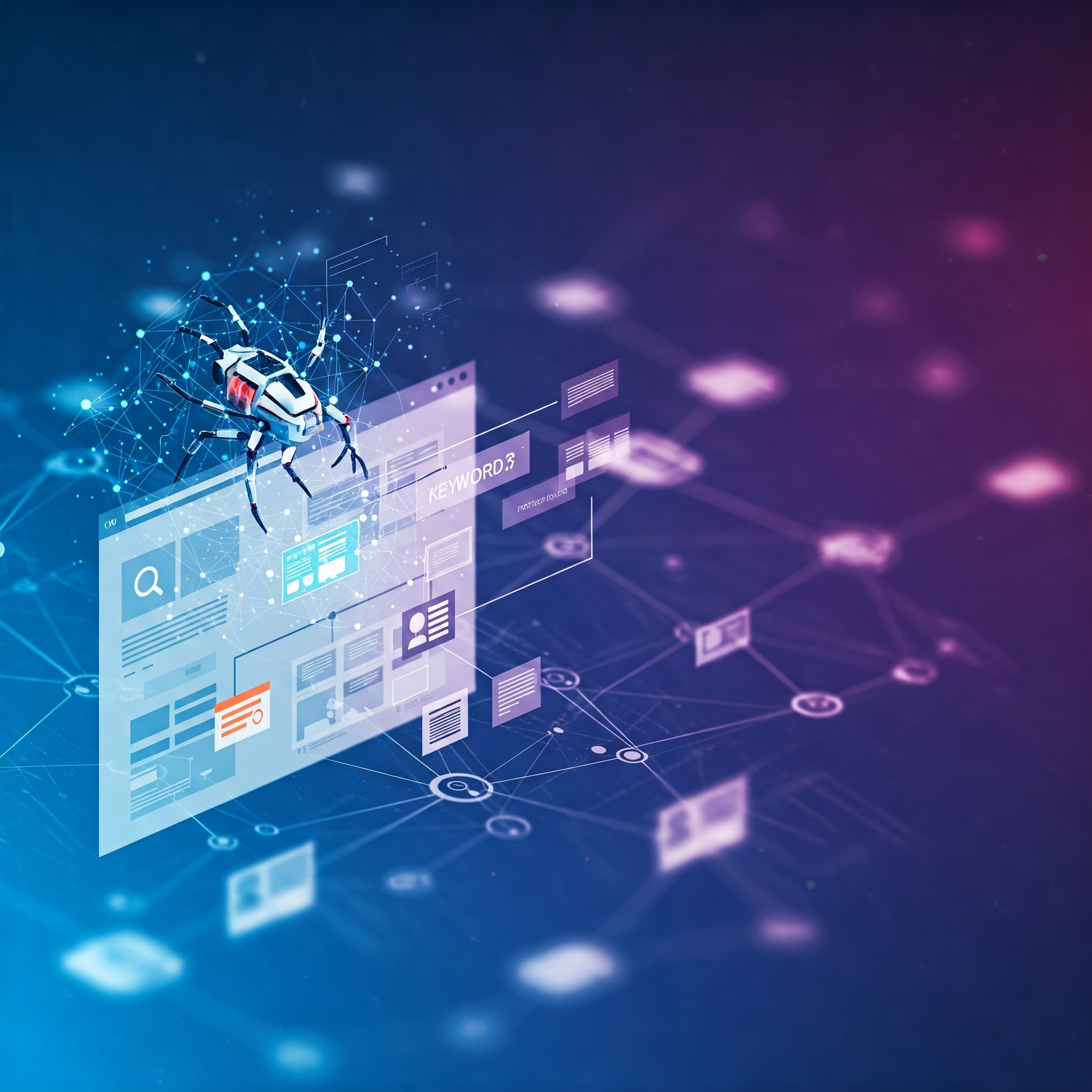What Powers Search Engine Crawlers? Understanding the Technology
 Shota Ishikawa
Shota Ishikawa
Introduction
Search engines like Google, Bing, and Yahoo scan billions of web pages daily to provide users with the most relevant search results. This process starts with search engine crawlers, also known as spiders or bots, which systematically browse the web to discover and index content. But what technology do search engines use to 'crawl' websites? These crawlers rely on advanced AI, machine learning, structured data, and indexing algorithms to efficiently process vast amounts of online content. Understanding this technology is essential for businesses and website owners looking to optimize their sites for better visibility and rankings.
What Are Search Engine Crawlers?
Search engine crawlers are automated programs that scan and analyze web pages to determine their relevance and quality. Their primary functions include:
Discovering new or updated web pages.
Following internal and external links to find more content.
Storing and indexing information for search engines.
These crawlers ensure that users receive the most accurate and up-to-date search results.
How Do Search Engine Crawlers Work?
Search engine bots follow a structured process to scan and index websites efficiently:
1. Starting the Crawl
Crawlers begin by accessing a list of known URLs, such as:
Previously indexed web pages.
New URLs submitted via Google Search Console.
Links found on other indexed pages.
2. Following Links to Discover Content
Crawlers navigate websites by following internal and external links, helping them discover related content.
3. Analyzing Website Content
Search engine bots scan and evaluate various elements of a web page, including:
HTML structure (headings, metadata, and page text).
Images, videos, and multimedia files.
Internal and external links.
Structured data (Schema Markup).
4. Storing and Indexing Data
Once crawled, the web page’s information is analyzed and stored in the search engine’s index, making it available for search queries.
What Technology Do Search Engines Use to 'Crawl' Websites?
Search engines rely on multiple advanced technologies to enhance web crawling and indexing efficiency.
1. Web Crawlers (Spiders, Bots)
Search engines use different web crawlers to scan the internet. Some of the most common ones include:
Googlebot – The primary crawler used by Google.
Bingbot – Microsoft Bing’s search engine bot.
DuckDuckBot – DuckDuckGo’s privacy-focused crawler.
Baiduspider – The web crawler used by Baidu, China’s leading search engine.
2. Artificial Intelligence (AI) and Machine Learning
AI and machine learning improve search engine crawling by:
Understanding content relevance beyond keywords.
Detecting spam and low-quality content.
Identifying user intent for better ranking accuracy.
Google’s RankBrain, an AI-powered algorithm, enhances search results by learning from user behavior.
3. Robots.txt and Meta Tags
Website owners can control how search engines crawl their content using:
robots.txt – A file that instructs crawlers on which pages to scan or ignore.
Meta tags (noindex, nofollow) – HTML directives that guide crawlers on whether to index a page.
4. XML Sitemaps
A sitemap is an XML file that helps search engines:
Discover new content quickly.
Understand website structure and page priority.
Ensure faster indexing of important pages.
Submitting a sitemap via Google Search Console improves indexing efficiency.
5. Structured Data and Canonical Tags
Schema Markup – Provides additional content details, improving featured search results.
Canonical Tags – Prevents duplicate content by directing crawlers to the preferred version of a page.
6. Mobile-First Indexing
Google prioritizes mobile-friendly websites, meaning search engine crawlers analyze and rank pages based on their mobile versions.
7. Page Speed and Content Delivery Networks (CDNs)
Search engines favor fast-loading websites. Crawlers prioritize pages optimized with:
Compressed images and scripts.
CDNs for better content distribution.
Browser caching to improve load speed.
How Search Engines Decide What to Index
After crawling a web page, search engines decide whether to index it based on:
Content originality and relevance.
User experience and mobile optimization.
Website authority and backlink profile.
Use of structured data and metadata.
Best Practices to Improve Website Crawling and Indexing
1. Submit a Sitemap to Search Engines
Use Google Search Console and Bing Webmaster Tools to submit a sitemap.
Update your sitemap regularly with new content.
2. Optimize Website Speed
Compress images and enable browser caching.
Minimize CSS, JavaScript, and unnecessary scripts.
Use a Content Delivery Network (CDN) to reduce server load.
3. Ensure Mobile-Friendliness
Implement responsive web design for different screen sizes.
Avoid intrusive pop-ups and autoplay media.
4. Improve Internal Linking
Link important pages together to help crawlers navigate efficiently.
Use descriptive anchor text for better indexing.
5. Publish High-Quality, Unique Content
Avoid duplicate content issues.
Provide valuable and well-structured information.
6. Monitor Crawl Errors and Fix Issues
Use Google Search Console to check for crawl errors.
Fix broken links and improve page loading speed.
Conclusion
Search engine crawlers use advanced AI, structured data, web crawlers, and indexing algorithms to scan and analyze web content efficiently. Understanding what technology do search engines use to 'crawl' websites? helps website owners optimize their sites for better rankings and visibility. By following best practices such as submitting sitemaps, improving page speed, and ensuring high-quality content, businesses can enhance their search engine performance and attract more organic traffic.
Subscribe to my newsletter
Read articles from Shota Ishikawa directly inside your inbox. Subscribe to the newsletter, and don't miss out.
Written by

Shota Ishikawa
Shota Ishikawa
I’m a digital marketing and SEO expert helping businesses increase visibility, drive organic traffic, and grow online. With a data-driven approach to SEO, content marketing, and analytics, I craft strategies that boost rankings and deliver long-term success in the digital space. 🚀